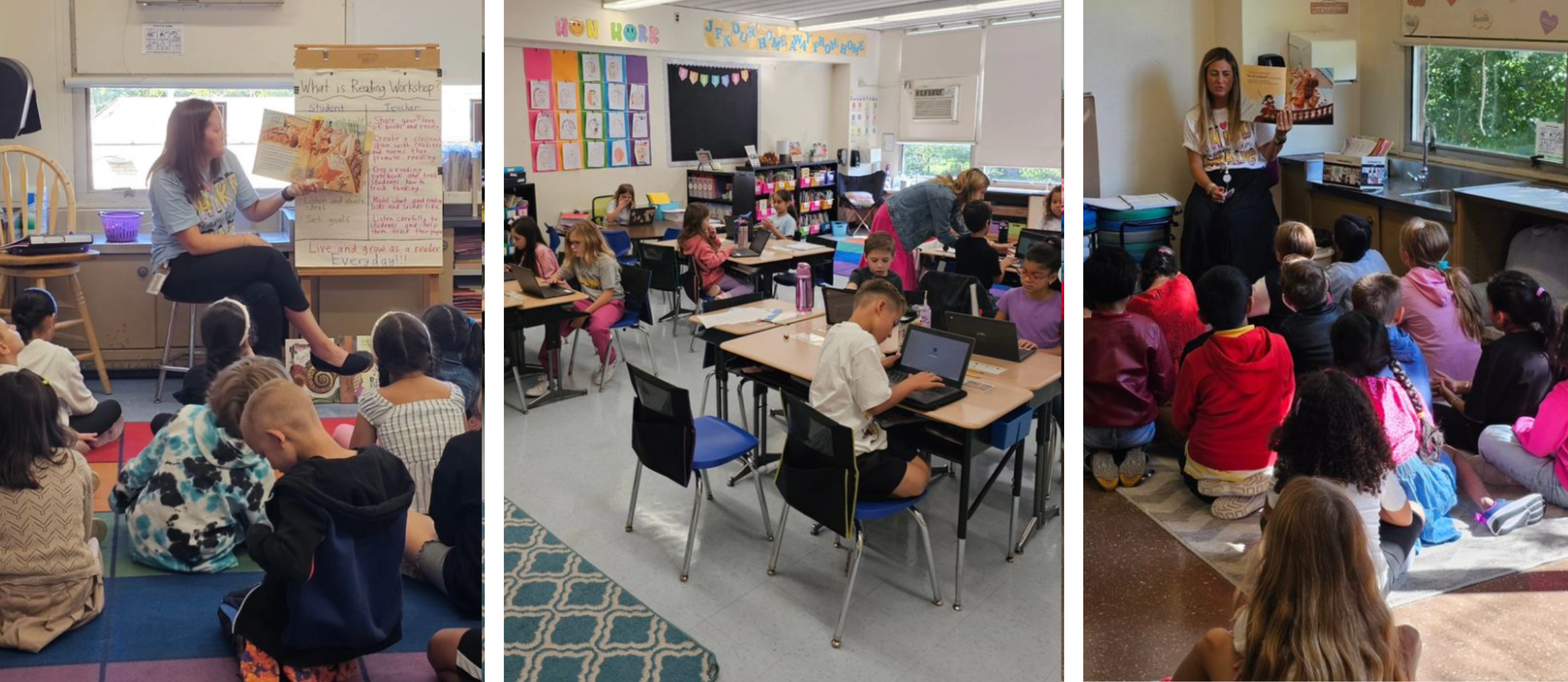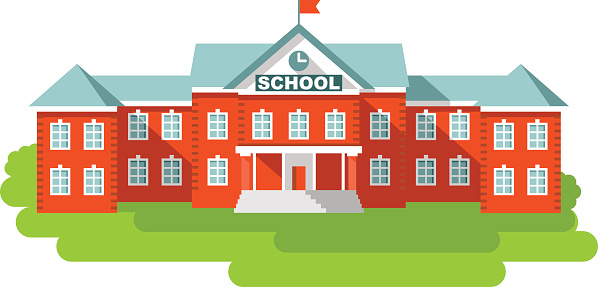The Significance of Neighborhood Assistance to Save Temecula Schools Today
The Significance of Neighborhood Assistance to Save Temecula Schools Today
Blog Article
Exactly How Schools Play a Critical Function in Shaping Future Leaders and Trendsetters
By integrating project-based learning and interdisciplinary research studies, instructional organizations test trainees to examine and manufacture complicated information. Educators offer as mentors, assisting pupils and nurturing their possibility, while extracurricular tasks better create leadership abilities and strength.
Fostering Important Thinking
In today's swiftly evolving world, cultivating essential believing within universities has actually become vital. As culture comes to grips with progressively intricate global difficulties, the capacity to evaluate, examine, and synthesize information is crucial. Schools play an essential duty in establishing these skills, preparing trainees to browse and deal with diverse troubles with educated, reasoned decisions.
To cultivate crucial thinking, teachers employ numerous pedagogical strategies that encourage active knowing and intellectual interaction. Class discussions, problem-based understanding, and Socratic questioning are important in advertising logical and reflective thought processes. By testing students to question presumptions and think about several point of views, these approaches guarantee a deeper understanding of topic beyond memorizing memorization.
In addition, incorporating important thinking throughout the educational program reinforces its importance and applicability in varied contexts. Topics such as mathematics, scientific research, background, and literature each offer one-of-a-kind possibilities to create students' critical professors. For circumstances, examining historic events needs examining resources and comprehending context, while clinical questions needs extensive hypothesis testing and evidence-based thinking.
Inevitably, instilling vital thinking abilities in students outfits them with the cognitive tools needed for lifelong understanding and flexibility. It is with this fundamental proficiency that future leaders will have the ability to innovate, solve troubles, and add meaningfully to society.
Motivating Creative Thinking
Welcoming imagination within academic structures galvanizes pupils to think beyond conventional boundaries and explore innovative services. By incorporating creative endeavors and imaginative reasoning workouts right into the curriculum, schools cultivate an atmosphere where originality and imaginative idea are valued. This technique not only enhances the educational experience yet additionally gears up trainees with the capacity to take on real-world difficulties in unique ways.
Educational institutions can promote imagination with varied ways such as project-based knowing, interdisciplinary research studies, and the unification of arts and modern technology. Project-based understanding, for example, urges trainees to apply their expertise in useful, typically collective, projects that demand creative problem-solving abilities. Interdisciplinary studies allow trainees to draw connections in between different subjects, therefore broadening their perspectives and enhancing their innovative abilities.
Additionally, offering pupils with chances to involve with arising innovations, such as coding and digital design, additionally supports their innovative potential. These activities trigger trainees to experiment, fail, and iterate, which are vital parts of the creative procedure (Save Temecula Schools). By keeping a helpful environment where experimentation is encouraged, schools can guarantee that trainees develop the self-confidence to seek innovative ideas
Basically, nurturing imagination in academic settings is indispensable for forming future leaders and trendsetters capable of dealing with complicated worldwide problems with resourcefulness.
Supporting Partnership

Implementing group-based discovering modules and participating tasks enables pupils to experience the dynamics of synergy firsthand. This not just prepares them for the joint nature of contemporary offices but likewise nurtures leadership high qualities as they typically need to take on roles such as task managers or group organizers. Additionally, collaboration in the classroom can damage down social obstacles and promote inclusivity, making sure that each pupil really feels valued and listened to.
Furthermore, incorporating technology can further sustain Learn More collaborative efforts. Tools like common digital work areas and interactive systems allow trainees to work with each other effectively, even outside the classroom. As students develop these joint abilities, they are much better outfitted to tackle complicated obstacles basics and innovate, preparing for their future functions as leaders and innovators.
Role of Teachers as Coaches

Mentorship includes personalized interest, where instructors recognize and nurture individual strengths and address weak points. Save Temecula Schools. Via individually interactions, instructors can tailor their recommendations and support to satisfy each trainee's one-of-a-kind demands, fostering a sense of confidence and resilience. This customized strategy cultivates a growth frame of mind, urging trainees to watch failings as chances for finding out and development
Moreover, teachers serve as duty models, demonstrating the values of willpower, honesty, and compassion. Their mindsets and activities give a plan for students to imitate, instilling a feeling of honest responsibility and social understanding. By creating a supportive and comprehensive class atmosphere, instructors allow pupils to create social skills that are important for reliable leadership.
Fundamentally, the mentorship given by educators lays a fundamental framework for the growth of future leaders, equipping them with the expertise, abilities, and worths required to master an ever-evolving world.
Impact of Extracurricular Activities
When integrated properly into the educational framework, after-school activities substantially enhance trainee development and management possibility. Recommended Site These activities give pupils with opportunities to explore passions beyond the traditional educational program, cultivating a well-rounded ability. Clubs, sporting activities groups, and arts programs grow essential top qualities such as teamwork, time management, and resilience. Engagement in these activities commonly needs students to take on duties, thereby nurturing their leadership abilities.
Additionally, extracurricular participation urges imagination and advancement. Students involved in songs, drama, or debate clubs learn to believe critically and method problems from diverse perspectives. These experiences infuse confidence, enabling students to voice their ideas and take initiative in various setups. By teaming up with peers from different histories, students additionally create empathy and communication skills, crucial qualities for future leaders.
Research shows that pupils included in such programs often tend to have greater grades and far better presence records. Hence, schools that focus on a balanced strategy to education, integrating durable extracurricular programs, are a lot more most likely to produce leaders and trendsetters equipped to meet the challenges of the future.

Conclusion
In verdict, institutions significantly form future leaders and trendsetters by nurturing crucial reasoning, creative thinking, and partnership amongst students. By cultivating a helpful atmosphere that values individual strengths and teamwork, schools furnish pupils with the essential abilities to navigate future challenges and drive development.
As students create these collective abilities, they are much better outfitted to tackle complicated challenges and innovate, laying the foundation for their future roles as leaders and innovators.
By cultivating essential thinking and analytical skills, instructors assist pupils navigate intricate obstacles, preparing them for leadership functions in different areas.
By collaborating with peers from different backgrounds, students likewise develop empathy and interaction skills, important attributes for future leaders.
In conclusion, institutions substantially shape future leaders and innovators by supporting important reasoning, imagination, and cooperation among students. By promoting an encouraging atmosphere that values individual staminas and synergy, colleges outfit students with the required skills to browse future challenges and drive innovation.
Report this page